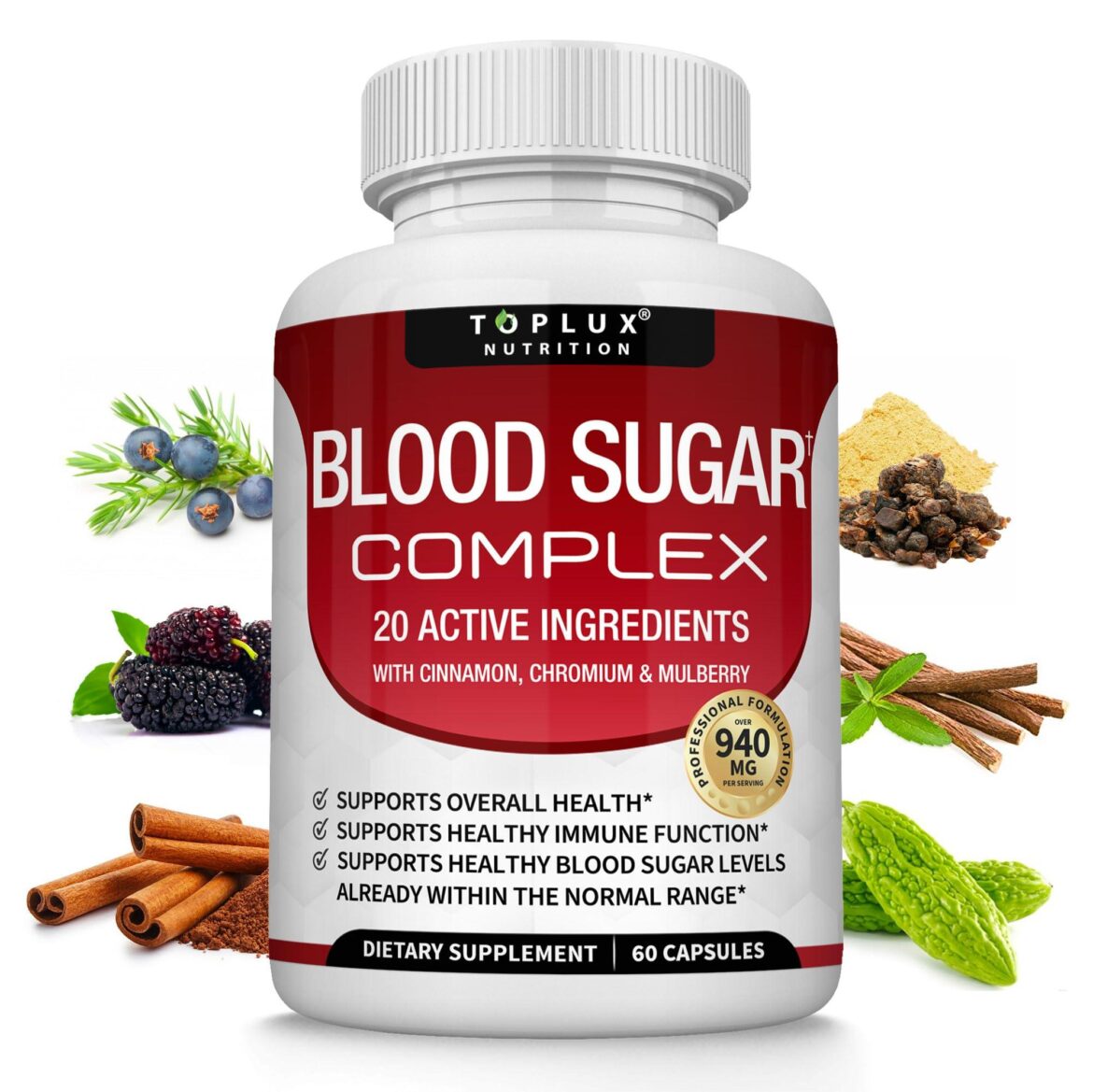In a world where the culinary landscape is rich with tempting treats and busy lifestyles can often overshadow our health priorities, managing blood sugar levels has become an essential aspect of well-being for many individuals diagnosed with type 2 diabetes. As this condition affects millions globally,the quest for effective management strategies has driven many to explore various supplements that promise to support healthy blood sugar regulation. From ancient herbal remedies to cutting-edge nutritional formulations, the myriad of options available can be overwhelming. In this article, we will navigate the complicated terrain of blood sugar supplements, examining some of the most effective and evidence-backed choices that can aid in managing type 2 diabetes. Join us as we delve into the best supplements to consider, providing a balanced viewpoint on their benefits, potential drawbacks, and how they can fit into a holistic approach to diabetes care.
Exploring the Role of Natural Ingredients in Blood Sugar Control
Natural ingredients have garnered attention for their potential to support blood sugar control, notably in individuals managing Type 2 diabetes. Many of these components, derived from plants and herbs, are believed to enhance insulin sensitivity and regulate glucose metabolism. Some of the most researched ingredients include cinnamon, berberine, and fenugreek, each contributing unique properties that may assist in stabilizing blood sugar levels. Their customary uses,coupled with modern scientific validation,make them appealing options for natural supplementation.
Incorporating these ingredients into daily routines can be achieved through various means. Supplements often combine multiple natural substances, offering a holistic approach to diabetes management. These may include:
- Cinnamon extract - known for its potential to lower fasting blood sugar levels.
- Berberine – A compound that may enhance the function of insulin and improve glucose uptake.
- Fenugreek seeds – Rich in soluble fiber, which has been linked to improved blood sugar control.
When considering natural ingredients, it’s essential to evaluate their efficacy and safety. Below is a comparison of some popular ingredients, highlighting their benefits and recommended dosages:
| Ingredient | Benefits | Recommended Dosage |
|---|---|---|
| Cinnamon | Improves insulin sensitivity | 1-6 grams per day |
| Berberine | Supports glucose metabolism | 500 mg, 2-3 times daily |
| Fenugreek | May reduce post-meal blood sugar spikes | 5-30 grams of seeds |

Top Supplement Choices Backed by Scientific Research
When it comes to managing blood sugar levels for those with type 2 diabetes, several supplements have garnered attention for their scientifically supported benefits. Among the most promising are Berberine, Cinnamon Extract, and Alpha-Lipoic Acid. These natural compounds have been investigated for their ability to enhance insulin sensitivity and promote glycemic control. Numerous studies suggest that incorporating these supplements into a daily regimen, under the guidance of a healthcare professional, can lead to significant improvements in overall blood glucose stability.
Additionally, the mineral Chromium has emerged as a vital player in blood sugar management, with research indicating its role in enhancing the action of insulin. Magnesium also deserves attention, as low levels have been associated with insulin resistance.For those looking to explore options, hear is a brief overview of these supplements:
| Supplement | Key Benefits |
|---|---|
| Berberine | Improves insulin sensitivity |
| cinnamon Extract | May help lower fasting blood glucose |
| Alpha-Lipoic Acid | Enhances glucose uptake |
| Chromium | Supports insulin function |
| Magnesium | Reduces insulin resistance |

Understanding the Synergy of Vitamins and Minerals for Diabetes Care
The interplay between vitamins and minerals plays a crucial role in managing blood sugar levels and supporting overall health in individuals with diabetes. specific nutrients can definitely help enhance insulin sensitivity and regulate glucose metabolism. As a notable example, chromium, a trace mineral, is essential for insulin function, while magnesium supports over 300 biochemical reactions, including glucose control. People with diabetes often have lower levels of these nutrients, making their inclusion in a balanced diet vital for effective management of the condition.
Incorporating a variety of vitamins can also bolster the body’s defenses against the complications associated with diabetes. Nutrients such as vitamin D and vitamin B12 are particularly crucial. Vitamin D aides in reducing inflammation and improving insulin sensitivity, whereas vitamin B12 supports nerve health, an area often compromised in diabetic patients. The benefits of these vitamins and minerals can be enhanced when consumed together, leading to a synergistic effect that helps optimize glucose control. Consider the following nutrient combinations for effective management:
| Vitamin/Mineral | Benefits | Food Sources |
|---|---|---|
| Chromium | Enhances insulin sensitivity | Broccoli, potatoes, whole grains |
| Magnesium | Regulates glucose metabolism | Nuts, seeds, leafy greens |
| Vitamin D | Improves insulin response | Fatty fish, fortified dairy |
| Vitamin B12 | Supports nerve health | Meat, eggs, dairy products |

Practical Tips for Integrating Supplements into Your Daily Routine
To seamlessly incorporate blood sugar supplements into your daily life, consider establishing a routine that aligns with your existing habits.For example, taking supplements with meals can enhance absorption and reduce the likelihood of digestive discomfort. Designate specific times in your schedule when you’ll be diligent about taking your supplements, such as during breakfast or dinner. You might find it helpful to keep the supplements in a visible spot,like next to your toothbrush or coffee maker,as a reminder. Consistency is key; pairing supplements with daily rituals can substantially boost adherence.
Another practical approach is to track your progress and understand how each supplement affects your blood sugar levels. Maintaining a simple journal or using an app to log your intake, blood sugar readings, and how you feel can provide valuable insights. Additionally, consider using a pill organizer for your supplements if you take multiple products each day. This can prevent confusion and ensure you don’t miss a dose. Lastly, consult with your healthcare provider periodically to discuss your supplement regimen, making adjustments as needed for optimal effectiveness.
In Summary
In the quest for effective management of type 2 diabetes, blood sugar supplements can serve as valuable allies alongside a balanced diet and healthy lifestyle. As we’ve explored in this article, these supplements offer a variety of ingredients that may support glucose control, improve insulin sensitivity, and promote overall well-being. While they can provide added benefits, it’s essential to remember that supplements are most effective when integrated into a thorough management plan tailored to individual needs.
as you venture into your journey of managing diabetes, consider leveraging the insights we’ve shared to make informed decisions regarding blood sugar supplements. Always consult with your healthcare provider to determine what aligns best with your unique health profile. With mindful choices and proper guidance, you can navigate the complexities of type 2 diabetes with confidence, empowering yourself to achieve a healthier and balanced life.
Here’s to a future where we take charge of our health, support one another, and explore innovative solutions for a better today and tomorrow.





